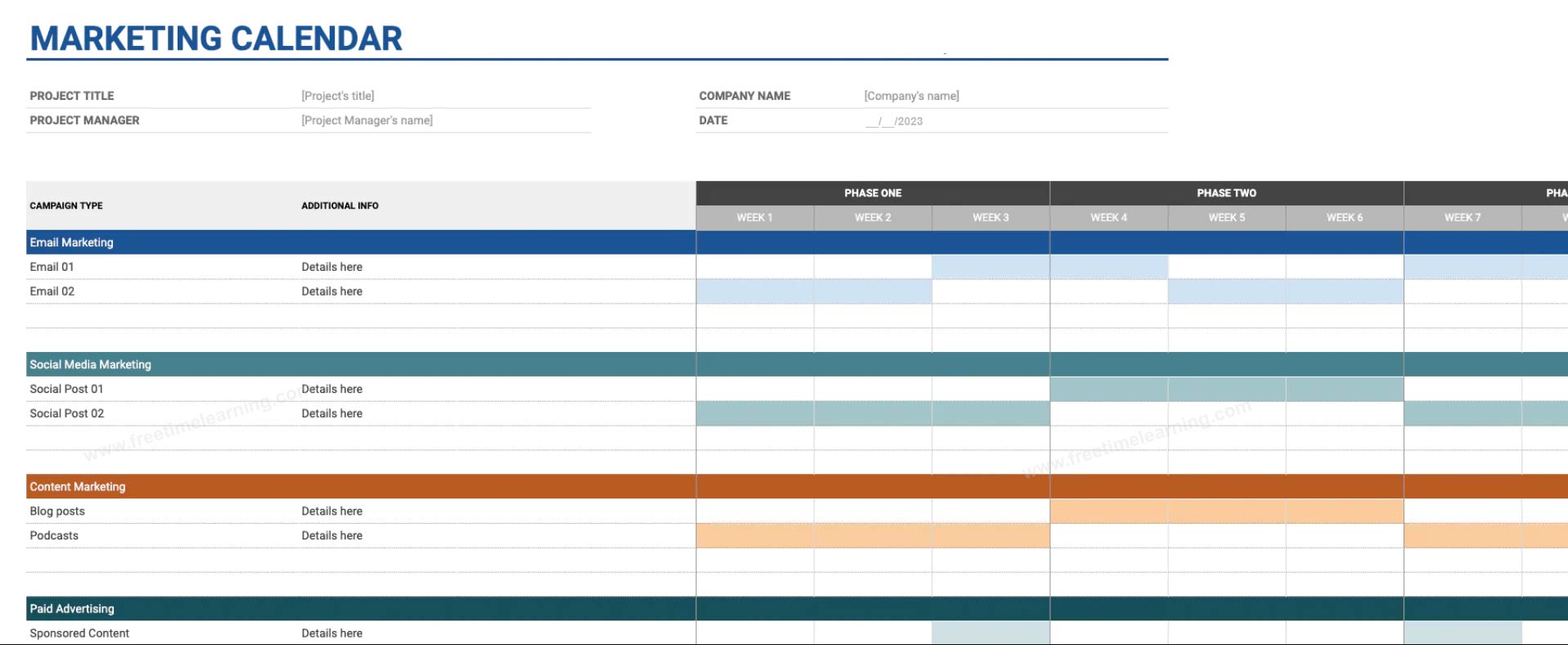How do marketing calendars different for small vs. enterprise businesses?
Your marketing calendar will look different if you run a small business or a enterprise-level company. Big businesses, as we mentioned above, have different types of marketing calendars for each marketing department, such as editorial (blog), social media, product or email. These businesses usually divide marketing into different teams or hire at least one dedicated marketing person responsible for each category.
For small businesses, a marketing calendar usually covers all marketing channels.
Different types of marketing calendars :
There are several types of marketing calendars that businesses can use based on their specific needs and objectives.
Here are 4 common types :
1. Editorial Calendar :
An editorial calendar focuses on content marketing initiatives, including blog posts, articles, social media content, videos, and other forms of content creation. It helps in planning and scheduling content production, ensuring a consistent and organized publishing schedule. An editorial calendar typically includes deadlines, topics, keywords, assigned authors, and publishing dates.
2. Promotional Calendar :
A promotional calendar revolves around planned promotions, discounts, sales, and campaigns aimed at driving sales and revenue. It outlines specific dates for promotions, seasonal offers, product launches, and any other marketing activities designed to boost customer engagement and generate sales. This type of calendar helps businesses coordinate their promotional efforts across various channels and optimize their marketing campaigns.
3. Event Calendar :
An event calendar focuses on organizing and promoting events, such as conferences, webinars, trade shows, product launches, or workshops. It includes key dates related to event planning, logistics, marketing efforts, and registration deadlines. An event calendar ensures proper coordination and enables businesses to effectively promote and manage their events to maximize attendance and engagement.
4. Social Media Calendar :
A social media calendar helps businesses plan and schedule social media content across different platforms, such as Facebook, Twitter, Instagram, LinkedIn, or YouTube. It includes dates, times, and specific content to be shared on each platform. A social media calendar ensures consistent posting, timely engagement with the audience, and strategic use of content to achieve social media marketing goals.

